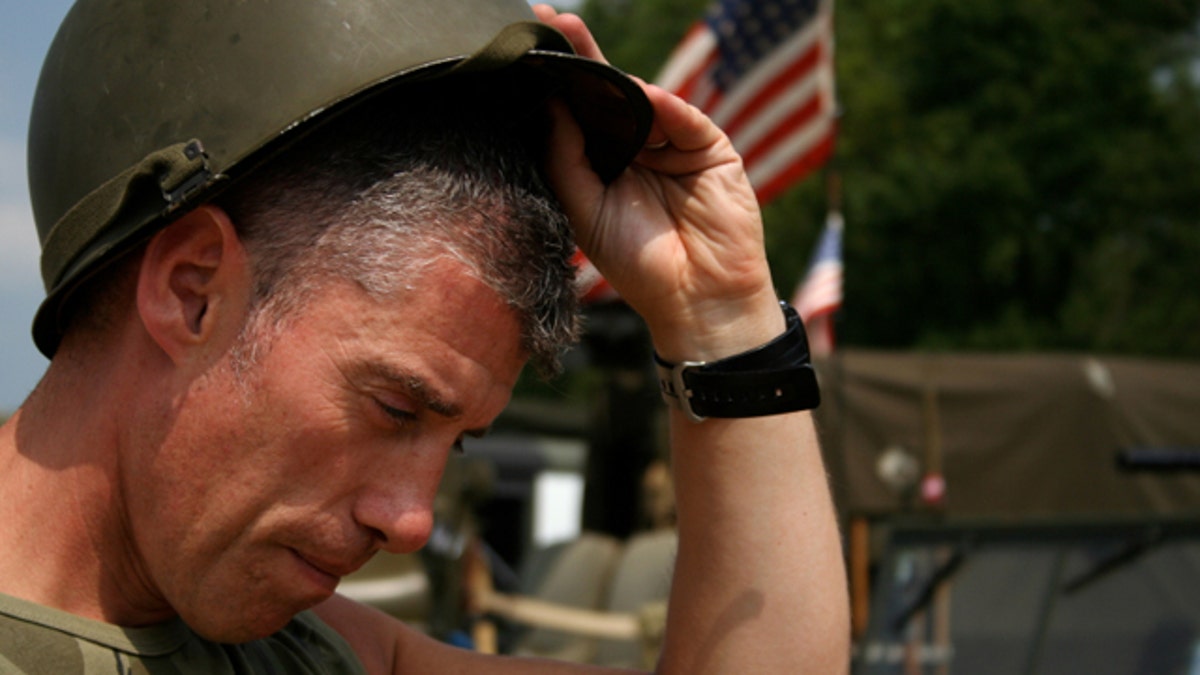
(iStock)
On March 31, 2011, Clay Hunt, a 28-year-old Marine veteran who had served with great honor in Iraq and Afghanistan, receiving a Purple Heart, finally succumbed to the psychological fallout of that service, killing himself in his Sugar Land, Texas, apartment.
Hunt, a leading voice in helping other veterans get psychological help, had struggled publicly with the demons of war, especially the loss of four friends in his platoon.
“Two were lost in Iraq, and the other two were killed in Afghanistan,” his mother, Susan Selke, told the Houston Chronicle. “When that last one went down, it just undid him.”
Click here to read more about Clay Hunt.
Suicide rates are up across all branches of the military, even the National Guard, where the rate has increased 82 percent since 2009.
Posttraumatic stress disorder (PTSD)—marked by distressing, intrusive traumatic memories, flashbacks and a feeling of extreme emotional detachment from others—is one of the reasons. “Survivor’s guilt” of the kind Clay Hunt experienced is a particular manifestation of PTSD.
Survivor’s guilt is a psychological syndrome in which someone believes he has done wrong by surviving a traumatic situation that claimed the lives of others. It was prominent in survivors of Nazi concentration camps who came to believe—irrationally—that they must have lacked courage or been otherwise morally flawed in order to have lived through the horrors that brought death to their spouses or children or parents or friends.
Those with survivor’s guilt can torture themselves with unfair, unending questions like whether they could or should have done more to prevent catastrophe befalling those they cared deeply about, whether they should have offered themselves instead, whether their ability to avoid being killed was actually due to self-interest, or a willingness to curry favor with the enemy, or blind luck of which they were very undeserving.
Perhaps some of these questions plagued Clay Hunt. Maybe they plagued many of the other veterans who have taken their lives after returning from Iraq and Afghanistan. Maybe many are more hobbled by guilt than by terror, awakened in the night not by flashbacks to their own near-death experiences, but to the deaths of others; not by terror, but by guilt—by the very fact that they somehow do not deserve to be alive, even that others died because of something lacking in them.
Survivor’s guilt is like empathy or selflessness gone awry, twisted back on itself until it becomes a dagger through the heart or a bullet through the brain. It is testimony to how the best qualities of the human soul can be made malignant by psychological trauma.
We are, it turns out, exquisitely—miraculously—sensitive creatures. We can care deeply about our fellow man. And, while we would never trade our sensitivity for callousness, that sensitivity also makes us vulnerable to psychiatric illness.
This is the way that some of the best of us, heroes like Clay Hunt, come to believe we are reprehensible, rightly guilty, worthy of scorn, representing the worst of us. This is the way that such valuable lives as Hunt’s are lost long after distant battles have ended.
It is time that the U.S. military, which has focused far too much attention on concepts, actually designed to make soldiers feel less--like desensitization and learned optimism—begins to join soldiers in the spiritual, moral and emotional journeys that begin when they return home and feel so much more.
